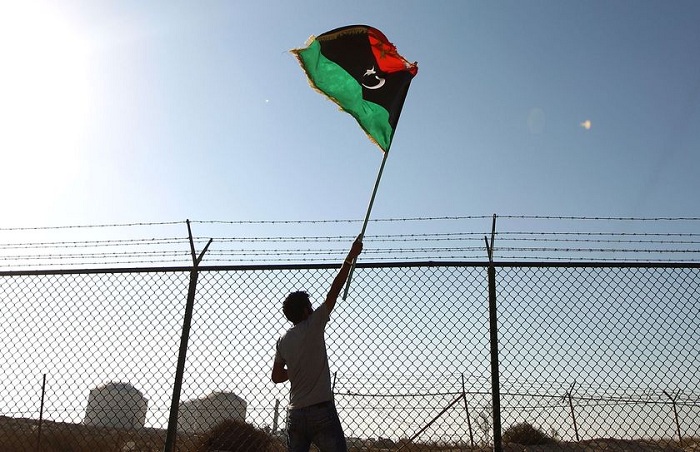The currency crisis is undermining Prime Minister Fayez al-Serraj’s efforts to unite a country fractured by five years of conflict following the 2011 ouster of Muammar al-Qaddafi, leading instead to public discontent as prices surge. Libya is split between two rival administrations and militias vying for power in the holder of Africa’s largest oil reserves.
Officials from the Tripoli-based central bank attended meetings along with other government members earlier this month in Rome. There they discussed a possible devaluation of the dinar and a removal or reduction of fuel subsidies, deputy minister of finance Abu Bakr al-Jafal said in an interview. Representatives of the central bank in eastern Libya also see a need for a devaluation to crush the black market, but say they must be involved in the decision.
“Devaluation is a must,” said Ali Jihani, an official at the eastern regulator, based in al-Bayda. “We might suggest making two exchange rates -- one for national imports, and another higher one for business importers and personal transfers.” But if officials in Tripoli attempt to impose a solution on the east, there “will be consequences,” Jihani said by phone without elaborating.
‘Fragile Five’
While the oil-price slump has battered all energy producers, OPEC’s most vulnerable nations were dealt a double blow of sharply lower revenues and the increased risk of political turmoil. This includes Algeria, Iraq, Libya, Nigeria and Venezuela, a group dubbed the “Fragile Five” by RBC Capital Markets Ltd.
In Nigeria, a black market for foreign currency has boomed since the crash in oil prices strangled the inflow of dollars. The central bank has made several attempts to defend the naira after it plunged to a record in 2014, including a tightening of capital controls and restricting banks’ ability to trade foreign-exchange, as well a currency peg that deterred foreign investment and worsened the shortage of dollars companies need to pay for imports.
With the World Bank estimating inflation will average about 20 percent this year in Libya, the Presidential Council on Monday allocated 300 million dinars to import food and distribute it at fairer prices.
Rate Climbed
Libyan officials have been forced to tap foreign reserves to keep the country running, and as revenues declined they also limited access to hard currency. That made both ordinary citizens and importers reliant on the black market, and as demand for dollars outstripped supply, the informal exchange rate climbed.
Ultimately, Libya needs to ramp up oil production to boost revenue and stabilize the currency. Output doubled to about 600,000 barrels per day since September when Khalifa Haftar, the general who holds sway over the nation’s east, seized key ports and ended a blockade. the National Oil Corp. says it could rise to 900,000 barrels even without major investments to fix oil infrastructure. But that wouldn’t generate the revenue needed to meet current spending and the production gains are fragile in the absence of a lasting political solution.
Authorities have discussed devaluation before. “I’m surprised how the state is still reluctant to take these measures,” said Ahmed Sanussi, a commentator on Libyan issues based in Amman. “The delay means the continuation of the crises and the nonstop increase of black market prices,” he said. Waiting means “a bigger devaluation would be required in the future.”
Pushing through a credible economic program that curbs the dinar’s collapse could lead to a surge in support for Serraj and his beleaguered government. If it tries and fails, Haftar could be the one who benefits.
In Tripoli, university employee Moftah Faraj said the country should be able to solve its economic crisis but the existence of rival governments, financial institutions and militia pose big hurdles. He said he worries about the consequences of devaluation.
“We have problems with liquidity, high living costs, a lack of medicine and health care,” he said. Weakening the dinar “will only create more problems for Libyan citizens as prices will rise.”
For a devaluation to work, officials will need to improve access to credit and hard currency, said Amr Farkash, a Libyan economic analyst. “If there are no support measures, the devaluation will amount to a declaration by the central bank that it is struggling and might have to do it again.”
More about:
















































